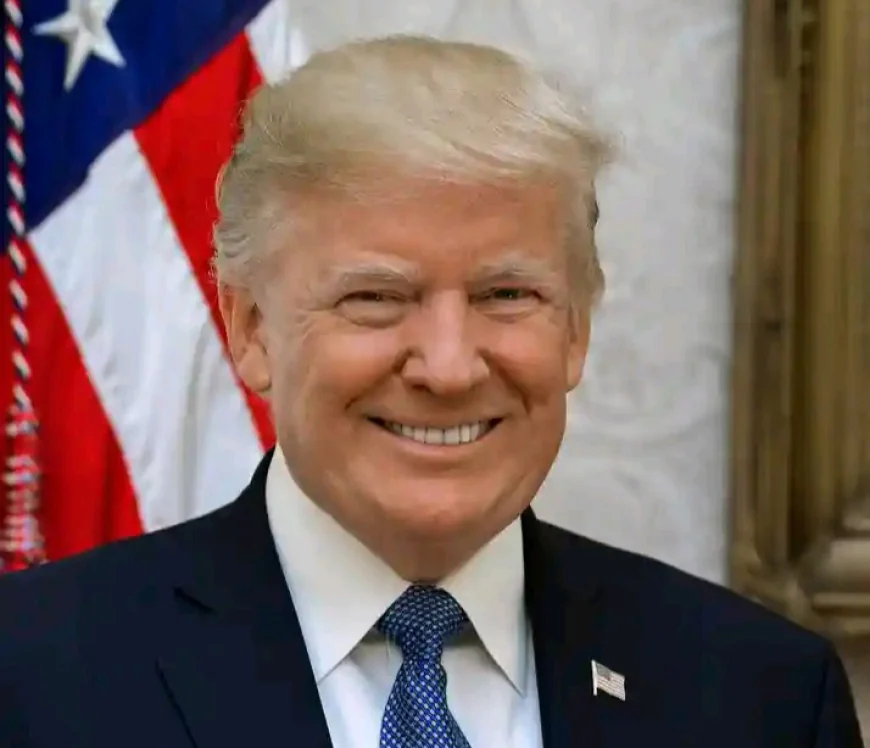Trump to Host African Leaders for Commercial Talks in Washington Amid Shift in U.S. Aid Strategy
Presidents of Gabon, Guinea-Bissau, Liberia, Mauritania, and Senegal to Meet Trump on July 9 for Investment-Focused Summit

U.S. President Donald Trump is set to host a high-level meeting with leaders from five African nations in Washington next week to explore commercial partnerships and promote investment-driven cooperation, a White House official confirmed on Wednesday.
The participating countries—Gabon, Guinea-Bissau, Liberia, Mauritania, and Senegal—will engage in discussions and attend a working lunch with President Trump on Tuesday, July 9, as part of a three-day summit scheduled from July 9 to 11.
“President Trump believes that African countries offer incredible commercial opportunities which benefit both the American people and our African partners,”
The official stated, signalling a continued shift in U.S. foreign policy toward economic diplomacy over development aid.
■ A Shift from Aid to Investment
The summit reflects the Trump administration’s new posture toward Africa, prioritising trade deals, private sector engagement, and self-reliance over traditional foreign aid programs. Since returning to the office, President Trump has slashed foreign aid to Africa, aligning with his longstanding “America First” agenda and efforts to reduce what he considers inefficient spending.
On Tuesday, U.S. Secretary of State Marco Rubio outlined the rationale behind the pivot.
“We’re abandoning a charity-based foreign aid model and will favour those nations that demonstrate both the ability and willingness to help themselves,”
Rubio told reporters.
■ Diplomacy Tied to Deals
In line with the new strategy, U.S. diplomats in Africa are now being assessed based on commercial deals secured between American and African businesses, according to Troy Fitrel, the senior official for African Affairs.
“Trade and mutual prosperity will define America’s partnerships on the continent,” Fitrel said in May, describing the new metrics of diplomatic success.
■ A Targeted Approach to African Engagement
The upcoming summit signals Trump’s targeted, country-specific engagement model. While the Biden administration emphasised broad multilateral initiatives like the 2022 U.S.-Africa Leaders Summit, Trump is focusing on selective, bilateral opportunities that promise measurable returns for American business interests.
Sources such as Africa Intelligence and Semafor earlier reported the planned summit, which is expected to feature sectoral discussions on infrastructure, energy, digital technology, agriculture, and finance.
■ Mixed Reactions
While proponents applaud the move as realistic and results-oriented, critics warn that the approach risks undermining long-term development goals and alienating vulnerable African nations.
Development experts also caution that the emphasis on commercial outcomes could marginalise countries with weaker economies and limit U.S. soft power influence on the continent.
Still, for nations like Liberia and Senegal—both seeking foreign investment for post-pandemic recovery—the summit could serve as a catalyst for new partnerships.
“It’s a moment of opportunity,” said a senior West African diplomat in Washington. “We welcome engagement that respects our sovereignty and supports our aspirations.”
The July 9 White House summit will mark Trump’s most direct multilateral engagement with African leaders since his return to office and is expected to outline a new era of U.S.-Africa economic cooperation grounded in reciprocity and private sector leadership.


